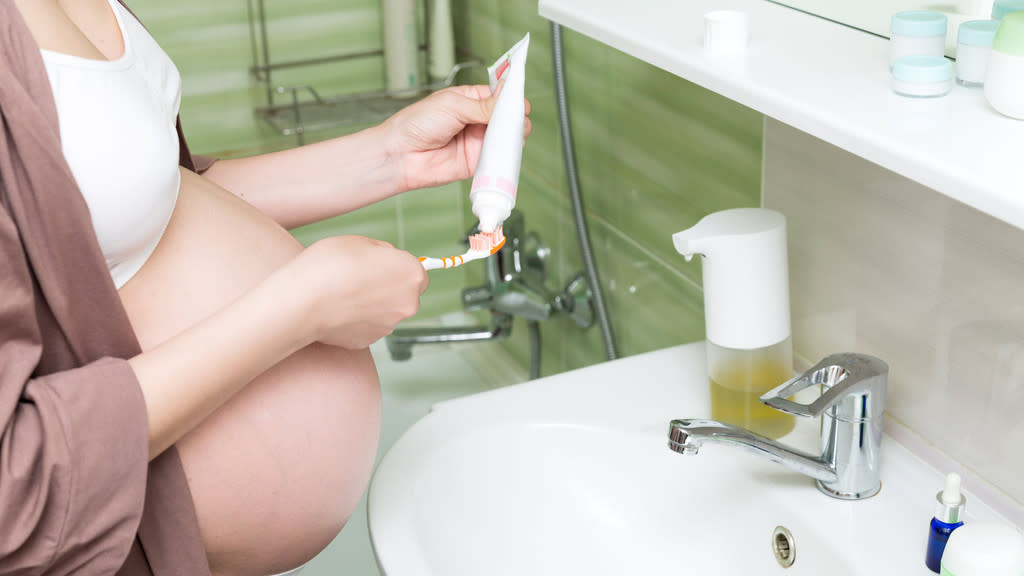How to care for your teeth during pregnancy

Pregnancy can bring a whole host of symptoms, including an increased risk of oral health problems.
Dr Smita Mehra, Principal Dentist at The Neem Tree Dental Practice, explains that changes to our hormone levels during pregnancy can impact the health of our teeth and gums, putting some at risk of developing dental issues like tooth decay and gum disease.
"Pregnancy hormones can trigger your gums to become inflamed, swollen, or even bleed - this is known as pregnancy gum disease," the expert says.
What causes gum disease in pregnancy and what are the signs to look out for?
When you are pregnant, you should be aware of any changes in your oral health, such as tender, red, or swollen gums.
"Pregnancy gingivitis (pregnancy gum disease) is a dental problem that can happen due to the change in hormones in your body, and usually occurs within the second and eight months of pregnancy, and subsides during the third trimester," Dr Mehra continues.
"You are more susceptible to gum disease during pregnancy because hormone levels are higher than normal making your body more prone to developing plaque in the mouth, which in turn can attack your teeth and gums and eventually lead to gum disease."
How to look after your dental health and hygiene during pregnancy:
Practice good oral hygiene
It is important that you make oral hygiene a priority to avoid problems such as tooth decay.
"As you progress through pregnancy, you may find that even brushing your teeth feels like a chore or the nausea associated with morning sickness is preventing you from brushing your teeth regularly," she states. "If this is the case, try switching to a more bland-tasting toothpaste - recommended by your dentist, or using a soft toothbrush that will reduce the chances of gum irritation."
Eat a balanced diet
Although it can be difficult due to pregnancy cravings, try to avoid sugar and stick to a balanced diet.
"While they are fine in moderation, you should try to stay away from foods that are very high in sugar like sweets, chocolate, or cakes," Dr Mehra advises. "This is because over time the sugars can attach to your teeth and gums making you prone to plaque build-up, gum disease, and tooth decay."
Rinse your mouth with saltwater
Rinsing your mouth with warm saltwater can help keep red or inflamed gums in check until you can see a dentist. Do not swallow the water.
"The salt will help to reduce any inflammation from pregnancy gingivitis and heal any open wounds or sore gums," she says.
Take advantage of free dental care and appointments
Regular visits to the dentist can help prevent dental problems and treat any that do occur.
Dr Mehra suggests, "While pregnant you should also make sure that you visit your dentist regularly, so they can check for any oral health problems, which you may be experiencing."

 Yahoo News
Yahoo News 
